Filter News
Area of Research
- Advanced Manufacturing (1)
- Biology and Environment (21)
- Clean Energy (12)
- Climate and Environmental Systems (1)
- Computational Biology (1)
- Fusion and Fission (2)
- Isotopes (2)
- Materials (10)
- Materials for Computing (4)
- National Security (1)
- Neutron Science (4)
- Nuclear Science and Technology (2)
- Supercomputing (6)
News Type
News Topics
- (-) Biology (24)
- (-) Polymers (14)
- (-) Space Exploration (11)
- 3-D Printing/Advanced Manufacturing (49)
- Advanced Reactors (18)
- Artificial Intelligence (21)
- Big Data (18)
- Bioenergy (21)
- Biomedical (15)
- Biotechnology (3)
- Buildings (24)
- Chemical Sciences (21)
- Clean Water (13)
- Climate Change (28)
- Composites (13)
- Computer Science (55)
- Coronavirus (15)
- Critical Materials (13)
- Cybersecurity (9)
- Decarbonization (12)
- Energy Storage (47)
- Environment (58)
- Exascale Computing (4)
- Frontier (4)
- Fusion (17)
- Grid (23)
- High-Performance Computing (23)
- Hydropower (6)
- Irradiation (3)
- Isotopes (13)
- ITER (4)
- Machine Learning (12)
- Materials (68)
- Materials Science (53)
- Mathematics (1)
- Mercury (3)
- Microscopy (20)
- Molten Salt (6)
- Nanotechnology (24)
- National Security (10)
- Net Zero (2)
- Neutron Science (41)
- Nuclear Energy (34)
- Partnerships (6)
- Physics (10)
- Quantum Computing (6)
- Quantum Science (14)
- Security (4)
- Simulation (11)
- Software (1)
- Statistics (1)
- Summit (8)
- Sustainable Energy (53)
- Transformational Challenge Reactor (1)
- Transportation (46)
Media Contacts
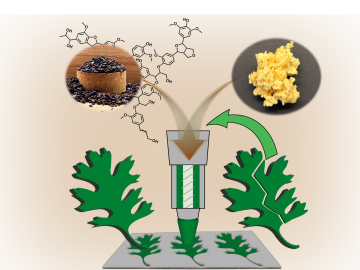
Oak Ridge National Laboratory scientists ingeniously created a sustainable, soft material by combining rubber with woody reinforcements and incorporating “smart” linkages between the components that unlock on demand.

Rigoberto “Gobet” Advincula, a scientist with joint appointments at ORNL and the University of Tennessee, has been named a Fellow of the American Institute for Medical and Biological Engineering.
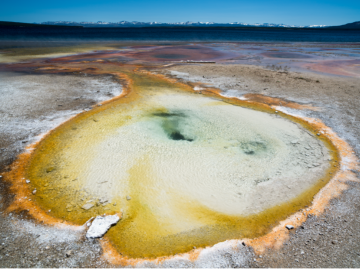
Oak Ridge National Laboratory scientists studied hot springs on different continents and found similarities in how some microbes adapted despite their geographic diversity.

Yaoping Wang, postdoctoral research associate at ORNL, has received an Early Career Award from the Asian Ecology Section, or AES, of the Ecological Society of America.
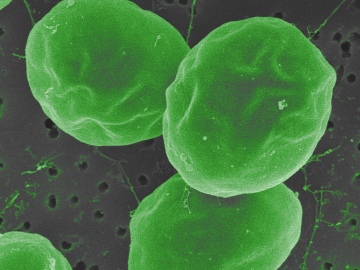
In the search for ways to fight methylmercury in global waterways, scientists at Oak Ridge National Laboratory discovered that some forms of phytoplankton are good at degrading the potent neurotoxin.
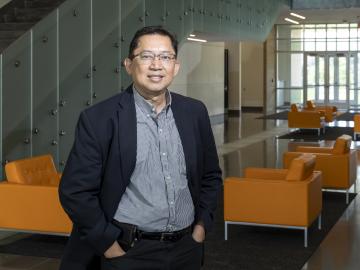
Rigoberto Advincula, a renowned scientist at ORNL and professor of Chemical and Biomolecular Engineering at the University of Tennessee, has won the Netzsch North American Thermal Analysis Society Fellows Award for 2023.
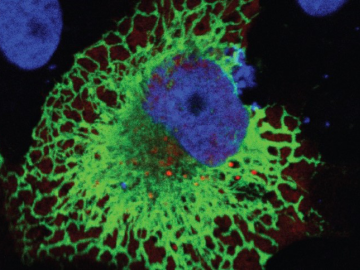
Oak Ridge National Laboratory scientists exploring bioenergy plant genetics have made a surprising discovery: a protein domain that could lead to new COVID-19 treatments.
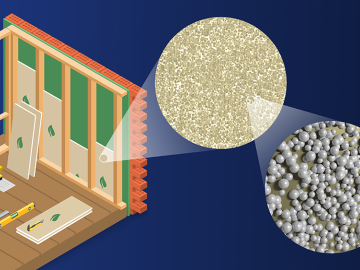
Scientists at ORNL developed a competitive, eco-friendly alternative made without harmful blowing agents.
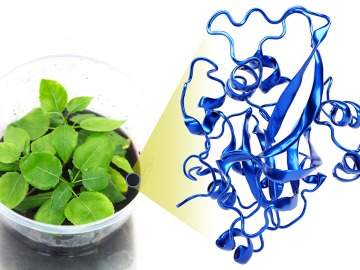
ORNL researchers have identified specific proteins and amino acids that could control bioenergy plants’ ability to identify beneficial microbes that can enhance plant growth and storage of carbon in soils.
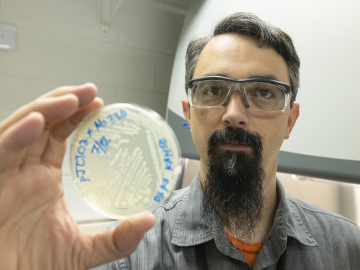
A DNA editing tool adapted by Oak Ridge National Laboratory scientists makes engineering microbes for everything from bioenergy production to plastics recycling easier and faster.




